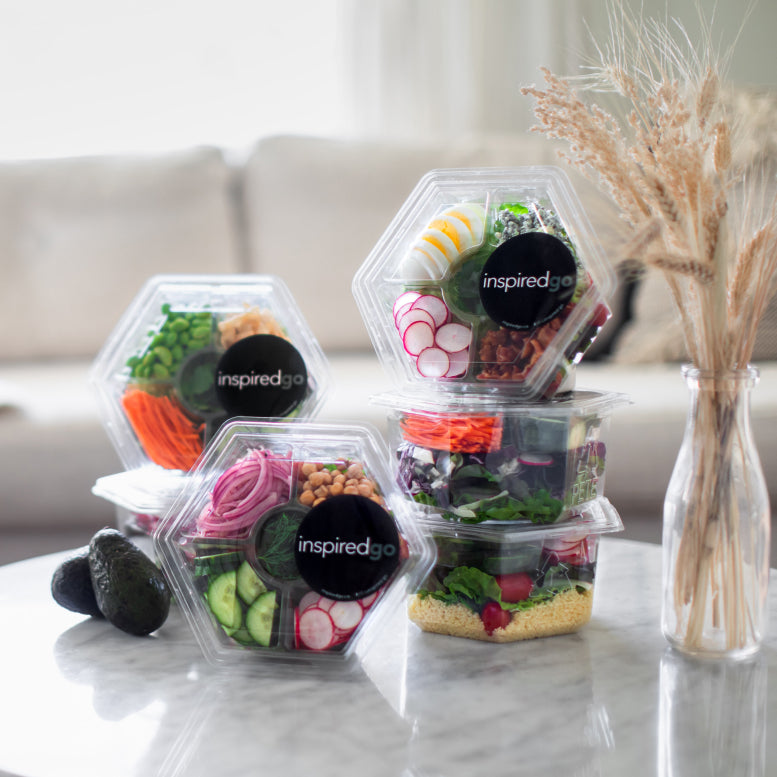What Is A Healthy Diet To Lose Belly Fat?
Table of Contents
1. Embracing a Nutrient-Rich Diet for Healthy Belly Fat Loss
2. What Is a Healthy Diet Plan?
3. How Can Meal Delivery Help With Sustainable Weight Loss?
4. How Does a Healthy Diet Support Long-Term Wellness?
1. Embracing a Nutrient-Rich Diet for Healthy Belly Fat Loss
Remember, there's no 'one-size-fits-all' diet for everyone. Personal preferences, lifestyle, and nutritional needs should be taken into account when designing a healthy eating plan. Consulting a healthcare provider or a registered dietitian can provide personalized guidance for a balanced diet that works for you.
Order fresh salads today →


2. What Is a Healthy Diet Plan?
A healthy diet plan emphasizes balanced nutrition, portion control, and consistency to support overall wellness and specific health goals. It typically includes lean proteins, complex carbohydrates, fiber-rich vegetables, and healthy fats while minimizing processed foods, added sugars, and unhealthy fats. Diet food delivery services simplify following such plans by offering pre-portioned, ready-to-eat meals designed by professional chefs and nutritionists. Customers can select meal plans tailored to weight loss, muscle gain, or managing health conditions, ensuring their meals align with their goals. Each meal includes clear nutritional labeling for transparency and easy tracking. With diet food delivery, customers can maintain a structured eating plan without the stress of grocery shopping, meal prep, or portioning.
Choose your salads and schedule delivery →
3. How Can Meal Delivery Help With Sustainable Weight Loss?
Achieving and maintaining weight loss isn’t just about cutting calories—it requires consistency, portion control, and the right balance of nutrients. Meal delivery services help customers lose weight sustainably by providing pre-portioned, nutrient-dense meals tailored to weight management. Unlike crash diets, which often lead to temporary results, structured meal plans focus on long-term success by ensuring balanced macronutrient intake while preventing overeating. With options for high-protein, low-carb, or calorie-controlled meals, individuals can select plans that align with their specific goals. By eliminating the guesswork of meal planning and preparation, diet meal delivery services make it easier to stay on track without feeling deprived or restricted.
Get fresh salads and snacks delivered →
4. How Does a Healthy Diet Support Long-Term Wellness?
Inspired Go’s meal delivery service focuses on long-term wellness by providing consistent access to balanced, ready-to-eat meals. Nutritionally dense meals crafted with whole grains, lean proteins, and fresh vegetables promote sustained energy, improved digestion, and mental clarity. Subscription options offer ongoing meal deliveries, ensuring dietary consistency even during busy weeks. Each meal is pre-portioned, helping customers manage calorie intake and avoid overeating. Inspired Go also emphasizes transparency with clear nutritional labeling, making it easier to track long-term progress. With a focus on sustainability, quality, and health, Inspired Go supports customers in building lasting dietary habits that contribute to lifelong wellness.
Try our fresh, ready-to-eat salads →
Frequently Asked Questions
Eating healthy without cooking is achievable by incorporating ready-to-eat nutritious options into your diet. Pre-prepared salads, fresh fruit, nuts, yogurt, and meal delivery services offering balanced meals are excellent choices. Look for meals high in fiber, protein, and healthy fats while minimizing processed ingredients. This approach ensures you maintain a nutritious diet even with a busy lifestyle or lack of cooking time.
Eating healthy on a budget involves planning meals around affordable, nutrient-dense ingredients. Prioritize staples like whole grains, beans, and seasonal vegetables, which are both inexpensive and nutritious. Opt for meal prep services or delivery plans that offer cost-effective options for healthy eating. Buying in bulk, reducing waste, and preparing meals at home also significantly reduce costs while maintaining balanced nutrition.
A healthy diet is one that emphasizes whole, unprocessed foods like fruits, vegetables, lean proteins, whole grains, and healthy fats. It provides the necessary nutrients for energy, growth, and disease prevention while limiting added sugars, saturated fats, and highly processed foods. A balanced diet supports physical and mental well-being and can be tailored to meet individual nutritional needs.
To eat more healthily, focus on gradually incorporating whole foods into your meals. Start by adding more vegetables to your plate, swapping refined grains for whole grains, and opting for lean protein sources like fish or legumes. Stay hydrated and avoid sugary beverages. Small, consistent changes can lead to long-term improvements in dietary habits without feeling restrictive.
Eating healthy is essential for maintaining overall health and well-being. A balanced diet reduces the risk of chronic diseases such as diabetes, heart disease, and obesity while supporting energy levels, mental clarity, and immune function. Consuming nutrient-dense foods provides your body with the vitamins and minerals it needs to function optimally, contributing to a longer, healthier life.

